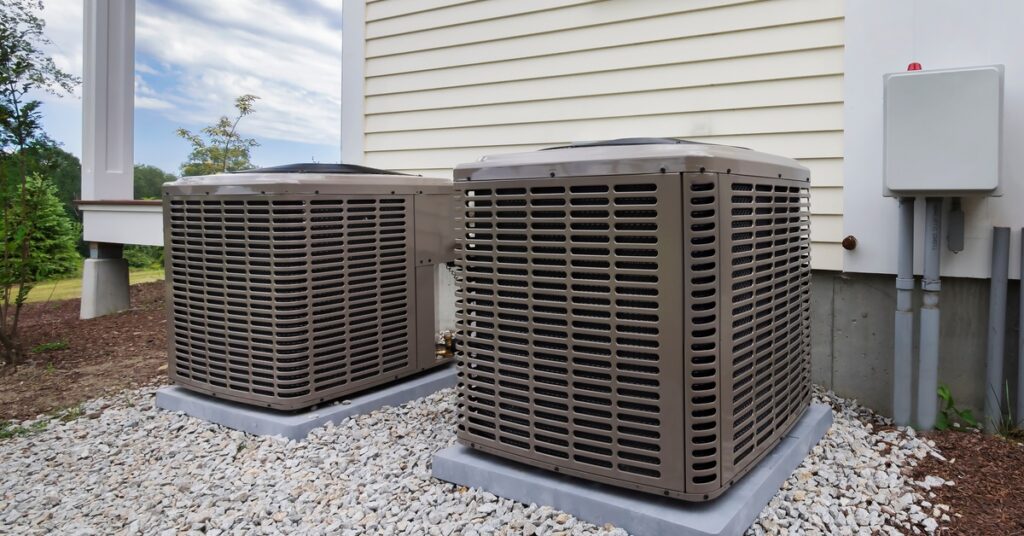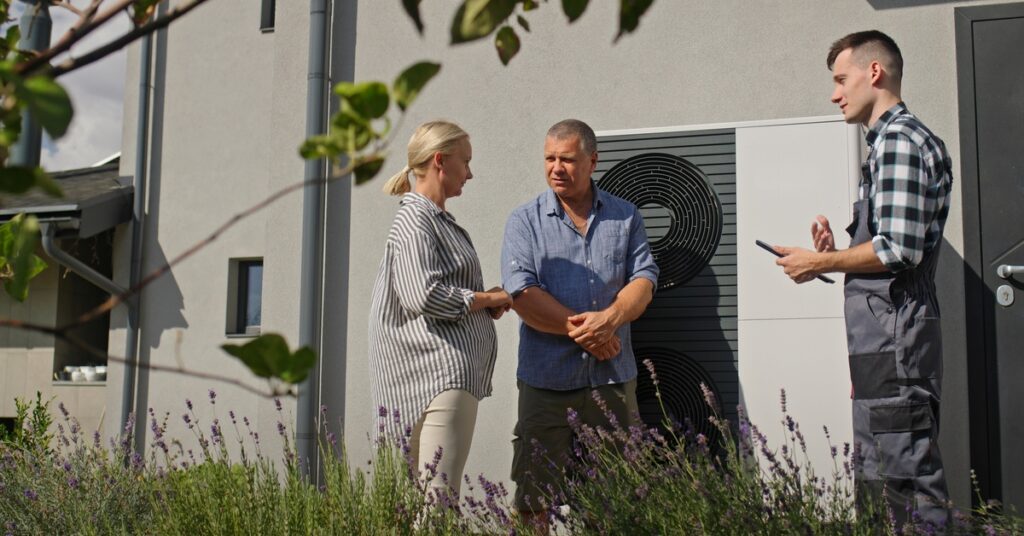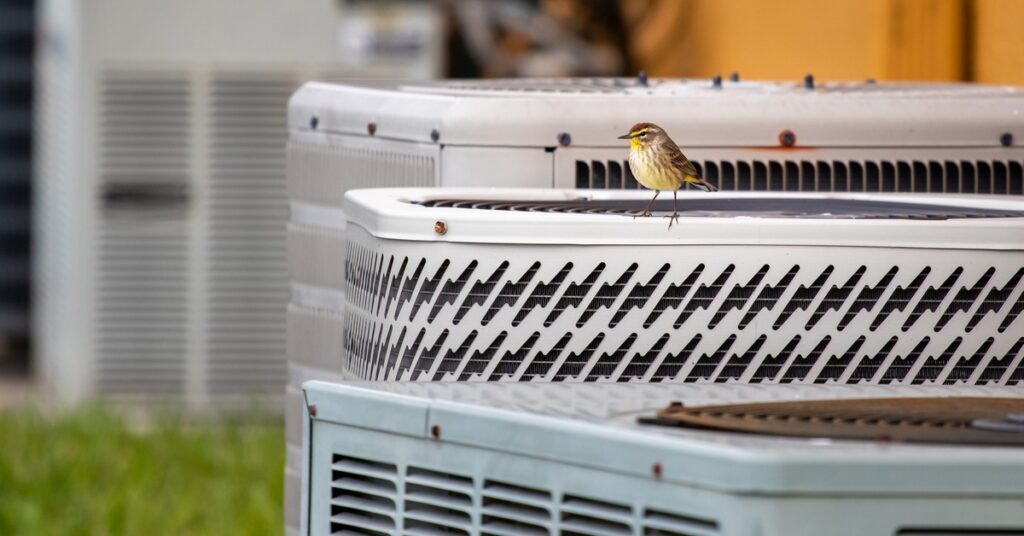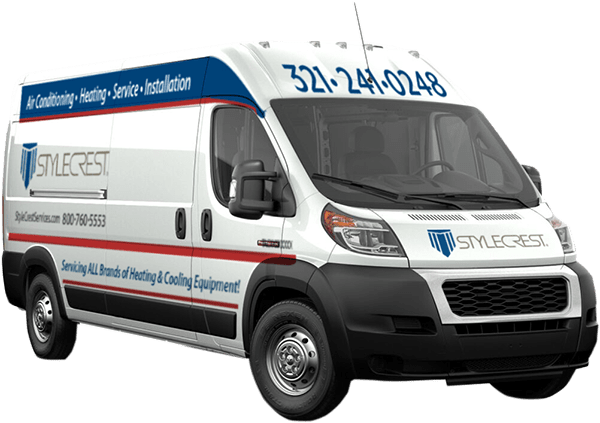On a scorching day, nothing is worse than trying to turn on the AC only for it to fail. As you inspect your HVAC unit, things just worsen as you uncover chewed wires and the culprit—a rodent living beside or within the system. This scenario is all too common. Pests like lizards, insects, and birds often see HVAC systems as perfect homes.
Beyond the physical damage they cause, pests can clog vents and ductwork with debris, reducing the unit’s efficiency and driving up energy bills. Worse yet, critters can introduce allergens, bacteria, or harmful waste into your home, posing health risks to you and your family. Read on for tips on how to pest-proof and protect your HVAC system.
Regularly Inspect the Unit
Checking the system for holes, gaps, or physical damage is key to spotting vulnerabilities that pests may exploit. Additionally, pests tend to leave behind signs of their existence, such as droppings, chewed wires, burrowing, or debris from nests that could disrupt the functioning of your HVAC system. When inspecting outdoor units, examine the surrounding area for these signs of activity.
Regularly checking the area reduces the risk of things snowballing into a larger issue. If you notice a nest and remove it right away, the animal is less likely to get into the HVAC unit and damage or disrupt things.
Seal Entry Points
Pests often infiltrate HVAC systems through small gaps, cracks, or openings in the units, ductwork, or nearby areas. When you examine each part of your HVAC unit, search for entry points and seal them. Caulk, foam sealant, or metal mesh can secure these openings.
For instance, add weather stripping around windows and doors near your indoor furnace or ductwork. Likewise, covering vents with mesh can prevent rodents and insects from entering the ducts. Make sure to also install vent covers and flue caps. Rodents, birds, and insects often find ductwork and vents inviting places to nest or hide, which can lead to damaging blockages.
Keep Areas Around the HVAC System Clean

Another tip for pest-proofing and protecting your HVAC system is to keep the space around it clean and clutter-free. Pests love cluttered areas since they make it easy to find shelter and build hidden nests.
Ensure the area surrounding the indoor part of your HVAC system is free of any boxes, papers, and other items that may have accumulated around the unit. Likewise, overgrown grass, weeds, and accumulated clutter near the outdoor portion of the unit can provide shelter for rodents and insects. Keeping outdoor areas clear and opting for pavers or stone around the HVAC unit instead of soil or greenery eliminates nesting opportunities.
Bonus Tip
Keeping the area around your HVAC system and ductwork clear of debris also facilitates adequate airflow and system operation.
Schedule Regular Professional Maintenance
Trained technicians have the expertise to detect and address issues that are hard to identify yourself, such as hidden nests, structural vulnerabilities, or subtle infestations. Scheduling maintenance at least twice a year will ensure that your system receives a thorough inspection, cleaning, and optimization for performance.
Prevent Dampness
Water is essential to life and can therefore attract pests. Excess moisture can create the ideal breeding ground for insects and rodents, making your home and HVAC system susceptible to infestations. Address the following concerns:
- standing water
- leaks (especially in pipes)
- a damaged condensation drain
- clogged gutters
Regardless of the cause, you should mop up the water and contact a plumber, HVAC technician, or another professional to fix the issue. You may also have to fix gaps or cracks using appropriate sealants and consider insulating pipes as a preventative measure.
Limit Humidity
It’s impossible to completely avoid humidity in Florida, as it’s a part of the climate. However, you can reduce it in your home with proper ventilation and dehumidifiers. Doing so will contribute to lowering your risk of pest infestations.
Use Pest Deterrents
One of the best ways to protect your HVAC system and home from pests is to drive them away from your property. Peppermint essential oil and vinegar are popular deterrents because they’re natural, eco-friendly, and cause no harm. You can use these methods indoors by soaking cotton balls or spraying diluted solutions near vent openings.
Some homeowners also sprinkle chili flakes around outside units. Another option is to plant pest-repelling, insecticidal herbs, such as lavender, rosemary, or basil, near your HVAC unit.
Know When To Contact Pest Control
Severe infestations require professional pest control intervention to resolve safely and effectively. For example, if you find a mouse nest in your walls or attic or a colony of ants in your kitchen, contact a licensed pest control company to assist with removal and prevention methods.
Qualities To Look for in an HVAC Specialist

If pests infiltrate and damage your HVAC system, it’s important to hire a technician you can rely on to repair the system after the pests have been removed. When searching for an HVAC specialist, look for individuals with the following traits.
Transparency
During their consultation, a reliable HVAC specialist is upfront about everything—from pricing to processes. They should provide clear quotes and explain what each service entails without hiding costs or using technical jargon. Look for someone willing to openly discuss repair or replacement options and offer sound advice without upselling unnecessary work.
Avoid companies that list all service prices on their websites. While this may seem like the perfect level of transparency, there may be hidden costs. The price of repairing an HVAC system depends on the scope of work, and set prices don’t apply to every situation.
Professionalism
Professionalism goes beyond just being skilled at the job. A great HVAC specialist respects your time by arriving on schedule and completing work efficiently. They should treat your home carefully, leaving no mess behind after their visit.
Helpfulness
Having pests in your home is stressful enough; knowing those creatures damaged your HVAC unit only adds to that anxiety. A helpful HVAC technician will not only fix your unit but also give you tips and advice to prevent pest-related issues in the future. Being proactive about such issues can save time, money, and the hassle of dealing with the issue repeatedly.
Contact Us
Style Crest offers air conditioning services to homeowners in Lake City, FL, Tyler, TX, Fort Worth, TX and Houston, TX, so you can keep your home cool all year round. Contact our team if you suspect that pests have damaged your HVAC unit. Our experienced technicians will promptly diagnose the issue and provide a solution that fits your needs and reestablishes your home’s comfort.


